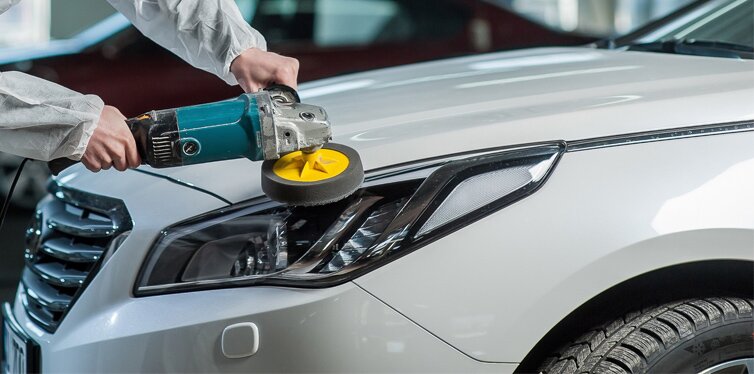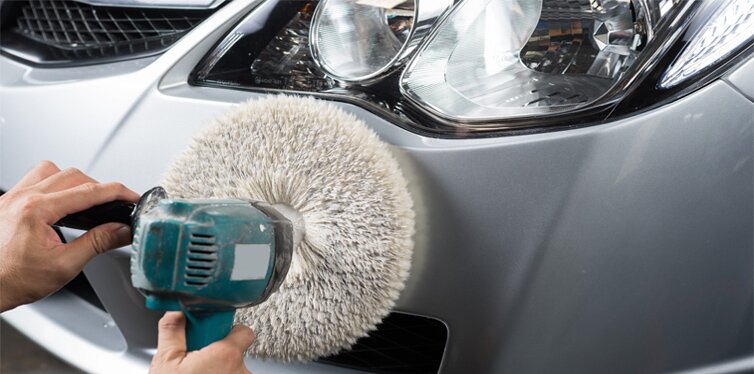
Your car is an asset as well as an investment that you would want to keep in great condition. Even if you do not buy a luxury brand, this vehicle is still very useful in transporting you to work or to wherever you want to go. Whether you are a car enthusiast or not, it is in your best interest to keep it in top shape for as long as you can. While you can always go to the mechanic for maintaining the engine, there is more than that to take care of.
The truth is, your car is exposed to the elements like snow, rain, or the sun. When there is extreme weather, it can be tough on the car’s finish. Other than that, dirt, mud and even bird droppings can land on your car and frequent use can lead to scratches. Your car’s paint, which protects the vehicle from the elements, can eventually be damaged. This is why maintaining a proper and regular car wash and cleaning schedule is important.

To truly take care of your car’s paint, you need to do more than just washing it. Some car owners opt to polish, wax, or buff. These practices will get rid of light scratches and make it shine again like new.
What Is Car Buffing?
Buffing and polishing are normally interchanged because they involve the same process, or to be specific, polishing is one of the steps involved in buffing. Buffing is either done manually, using a manual buffing machine, through high-speed buff done by the experts, or through an orbital buff that uses a handheld circular buffer.
If your car has a lot of scratches or other paint imperfections, buffing is a great solution. These issues are normally on the outermost paint surface and buffing it will remove the damaged layer and reveal a newer, nicer looking one. Beyond the aesthetic improvement, buffing will also extend the life of your car’s finish much longer than not buffing. Moreover, you can finally get rid of those light scratches that have annoyed you for a while.
Steps to Buffing Your Own Car
To begin, you would need a polisher, a car polish of your choice, and an orbital or high-speed buffer.
- Park Your Car
First, you need to bring your car somewhere safe. While most will not think twice about this step, you need a safe and secure spot to park your car while buffing. This might take a bit of time so empty your schedule and prepare yourself. When you have a safe spot for your car, keep it away from direct sunlight that is dangerous to your car paint as well.
- Clean the Car
It is vital to remove any surface dust and dirt to prepare for buffing. More than that, you can see any swirl marks, scratches and other imperfections better when the car is clean.
With your bucket full of soapy water, scrub the car using a sponge, starting from the top and working down. Use circular strokes to cover more ground and become faster. Rinse well and dry the whole car with a microfiber towel.
- Choose What to Use for Buffing
You need to determine if you will use a polisher or compound. A polisher is more commonly used but if your car has some deeper scratches or marks, then you should opt for a compound.
The next decision to make is what kind of buffer to use. The best option out there is a high-speed buffer, which is quite like a polishing machine. For optimal results, this is the recommended kind as it simply is much easier and better than doing it by hand. Buffing works by removing existing scratches and marks, and a high-speed buffer can do this much faster. However, a disadvantage is that inexperience or any wrong move can create more scratches so you should practice first.

The alternative is an orbital buffer, which will need a bit of effort on your part but will have much more control than the high-speed one. If your car’s paint does not have as many imperfections, using this might be enough. You can still expect a nice shine though not as impressive as with a high-speed buffer.
- Buff Away
Once you are ready, then you can start buffing. Just make sure that the car is already fully dry, using a towel to dry up any wet areas. Apply some polish or compound, following the instructions on the packaging. You can also opt to just use small amounts, applying again as needed.
Take your buffer and with a strong grip, begin buffing the surface of the car, using circular movements. Guide the buffer gently, holding onto it tight to avoid any wrong moves. Buff until you achieve the desired shine. Do not overdo it as you might cause more damage.
Buffing requires some skill and very steady hands, so if you are unsure you can do it, then opt to have someone do it for you. But if you are willing to practice and learn slowly, then you can learn it and personally take care of your car.

Comments